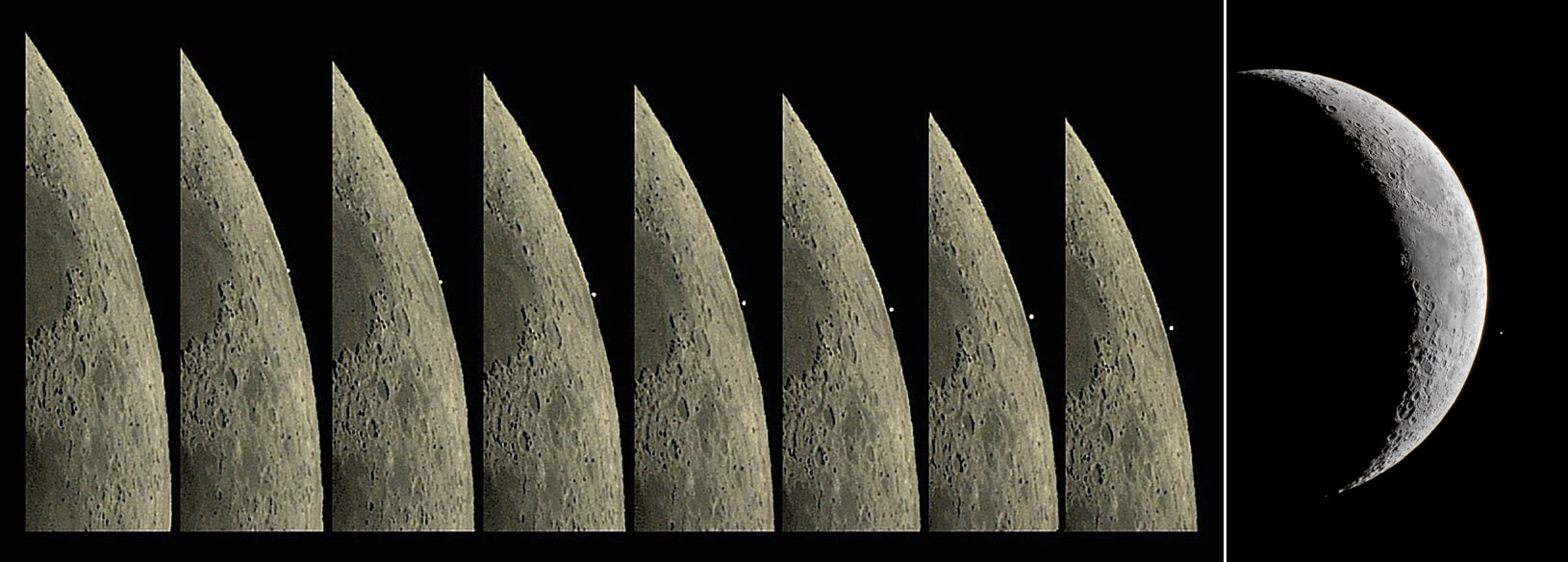September 21, 2012
Coming Out

left image series by Ricardo Jose Vaz Tolentino, Brasil; right by Luis Argerich, Buenos Aires, Argentina
On September 19th Mars was occulted by the Moon, at least for observers in South America. Do you notice
anything different about the event as recorded in these two depictions? The first is a series as the Moon
moved pass Mars, and the last on the right is a single shot after the Moon had moved a little more. It looks
like Mars jerked to the south between Ricardo's and Luis' images for it moved from being near Mare Marginis
to being beyond Petavius. This is what it looks like, but looks reflect where we look from. Luis' location in
Buenos Aires is south of where Ricardo observed from. Although the Moon is fairly distant compared to the
distance between Luis and Ricardo, their offset is enough to significantly displace the Moon compared to
background objects, like Mars. This offset happens all the time but people don't generally compare images
from about the same time so we don't notice it against stars. (Although some transcontinental educational
projects have been coordinated specifically to measure the offset and determine the distance to the Moon.)
One more thing - did you notice how tiny Mars is? It about the size of an inconsequential lunar crater...
Chuck Wood
Technical Details
Left series: September, 19, 2012, reappearance at 22:34:32 Universal Time. Orion EON 120mm ED APO &
Camera Orion StarShoot Solar System Color Imager III. Each picture with just 1 frame.
Right: September, 19, 2012. Canon 60D and a 1500mm Mak-Cass scope at prime focus.
Related Links
Ricardo's website
Luis' website
Yesterday's LPOD: Doing It Right
Tomorrow's LPOD: Cutting Comments
COMMENTS?
Register, Log in, and join in the comments.



